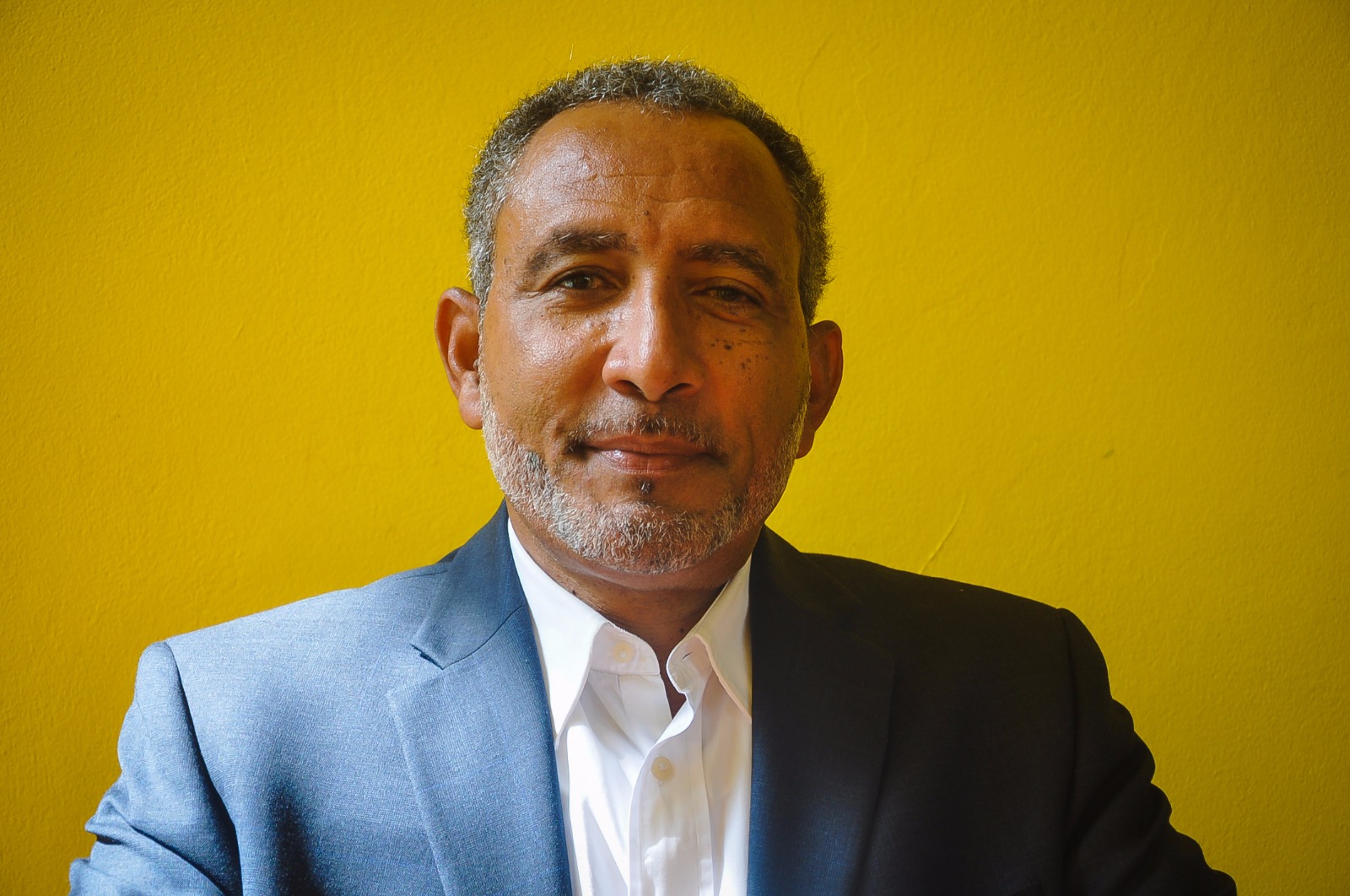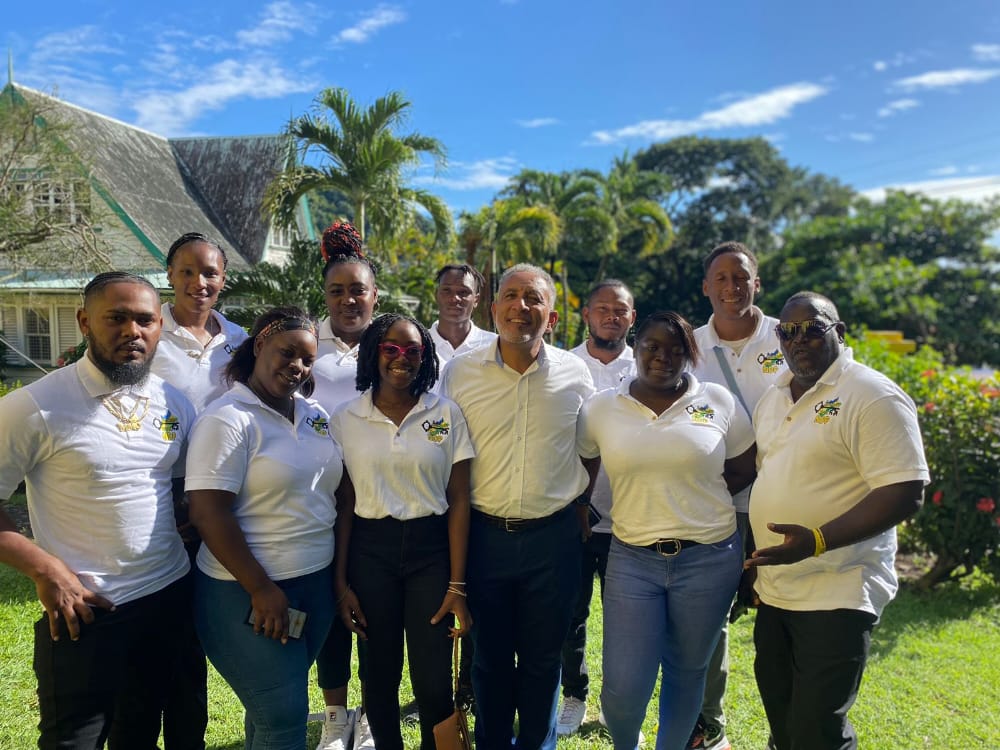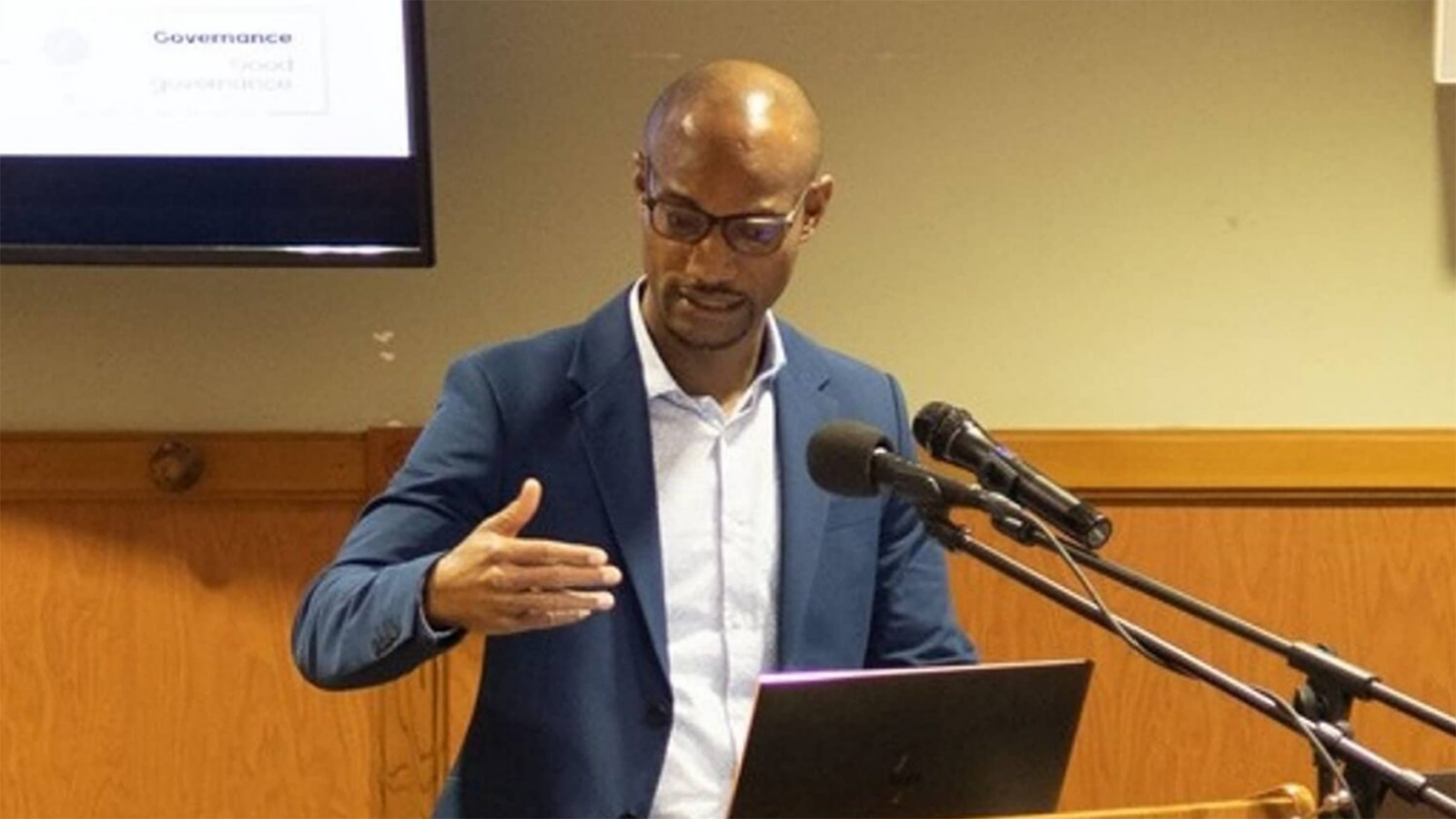National Address by Dr. the Hon Godwin Friday on Combatting Crime December 2022
My fellow Vincentians,
Greetings once again.
One of the most pressing problems facing us today, we can all agree, is the epidemic of crime sweeping our country. Crime affects everyone, directly or indirectly. When our safety and our peace of mind are undermined, it affects us profoundly.
The first duty of any government is to protect the lives and livelihoods of its people. Over the last year, we have seen crime become more and more prevalent in our communities and on our streets. This year, 2022, is turning out to be one of the most violent in recent memory. We are not far off the 2016 record-breaking murder count of forty (40) in a year.
The Gonsalves government has overseen one of the worst periods of our existence as a nation and worryingly they offer no hope that an end is in sight. The number of homicides so far this year stands at 37. Most have been victims of gun violence. There have been other gun-related crimes that have not resulted in death. All are profoundly serious matters for our country.
SVG’s current murder rate is over 36 per 100,000 and is among the worst in the OECS. My friends, you and I know that this is a crisis. The only people who seem to think otherwise are those in the government. Instead of tackling the issue and proposing solutions, the Prime Minister/Minister of National Security, appears to dismiss the alarming upsurge in violent crime with statements that young males have a “fascination with guns” and that the youth should “live in the real world and not the one they see on social media or films”. Such casual remarks fail to appreciate the gravity of the problem and fail to assure the community that help is on the way.
Large sections of law enforcement personnel feel unsupported and demoralized. They are denied the tools to fight crime effectively. Also, there are credible reports of commendable efforts in investigating crimes being thwarted by undermining interventions.
Simply put, criminals have been literally getting away with murder! They no longer fear of being caught and being punished. Reversing this requires tough choices and a willingness to be decisive and determined in combatting crime. It requires most importantly understanding the real world in which the young men and women of our nation have been living over the past two decades under this government.
We note, for example, that Unemployment is extremely high. In June of this year, the World Bank reported youth unemployment to be a staggering 41% of Vincentian youth between the ages of 15 and 24. This rate exceeds our neighbours in St. Lucia (38.7%), Barbados (30.6%) and Trinidad & Tobago (12.7%) and far exceeds the average for Caribbean small states of 25.4%.
We further note that Poverty has gotten worse. As governments before had done, the present government commissioned an assessment of poverty in SVG. The report of that study, for the period 2008-2018, has still not been released by the government. But we obtained the report and made it public. The damning evidence was that poverty in this country has gotten worse over that period of the ULP government, moving from 30.2% of the population in 2008 to 36.1% in 2018! In some communities, the situation worsened dramatically.
Against this backdrop, criminality continues to project an emboldened face in our society. Coming out of a spate of shootings earlier this year, there were reports of individuals associated with known gangs threatening to take justice into their own hands, night or day and in any place they chose.
Though the powers that be dismiss these threats and incidents as being restricted to a small group of people, recent events bring a stark reality home: i.e., anyone at any time can be collateral damage in these shootouts. The hail of bullets that several weeks ago resulted in the deaths of two young men and wounding of several others in the Kingstown area shows that the problem is getting worse and the risk to communities is growing.
So, the youngster enjoying a football match at the park; the nurse out for an evening with her friends; the labourer going home after a hard day’s work, or the worshipper picking up some groceries after church: none can take their surroundings for granted. Unfortunately, any of them could become unintended victims because stray bullets don’t know or care who they hit and kill.
The Better Way
It does not have to be that way. As a country of God-fearing people, we are better than that and do not have to accept living that way. But government must act to make it better. The present government does not have the will, the moral authority, or the competence to tackle the problem of increasing crime and violence. They lack ideas and, consequently, lack solutions.
There is a better, more hopeful alternative that will improve life for our people and make SVG a beacon of good governance. We have called for effective means to fight crime, not merely with words but with a clear plan to action, and that we will implement as soon as voters replace this failed government.
To be effective, we must understand what gives rise to crime and then develop strategies and programs to meaningfully reduce crime.
Accordingly, we call for the implementation of the following measures:
1.We must Focus on Crime Prevention. An ounce of prevention is still better than a pound of cure! We should invest more heavily upfront on crime prevention. In this regard, the programmes outlined in the Spiritual and Social Redemption Charter should be implemented. The charter focuses on positive community-oriented programs that would steer vulnerable young people away from crime towards socially positive behaviour.
2. We must Restore Trust and confidence in the police and the criminal justice system. Trust in the system is currently broken. Political connections should not shield anyone from proper investigation and rigorous prosecution. Justice must be seen to be done equally for all. This will help everyone. It will help the police in their work and also in their lives. They and their families are as much members of society as the rest of us and, therefore, can just as easily be victims of crime and violence.
Further, the police cannot solve crimes by themselves. They need the community to provide information during investigations and witnesses in criminal cases. We can promote this by implementing and pursuing community policing.
We must also increase the presence and visibility of police in our streets and communities, not in a hostile manner but to assure people that they are there to protect them.
With specific training in community policing, the police would engage in trust-building activities in communities. For example, regular meetings between the police and community members should be introduced so that they would work together to prevent and solve crimes. The police must see their mission as serving and protecting people and be keen to embrace the community in doing so.
3. We must create a well-resourced and well-equipped criminal justice system. There continues to be an outcry about the ineffectiveness of our criminal Justice system because it fails to impose appropriate penalties to deter offenders. Recall the case earlier this year of indecent assault of a 4-year-old girl by a 35-year man in which the penalty was a mere of 4 years in jail. The public was outraged and called for stiffer penalties in such cases. We totally agree with that call.
Creating an effective and well-resourced criminal justice system involves the police, the Director of Public Prosecutions, the courts (i.e., magistrates and judges) and the prison system. It is vital that these components are appropriately equipped and that they function professionally and independently.
It also involves (i) reviewing our criminal laws and revising them to provide greater sentencing options for magistrates and judges; (ii) introducing measures that would improve access to justice; (iii) increasing the number of magistrates; (iv) expanding the High Court and improving its facilities; and (v) upgrading forensic laboratory services to expedite investigation and prosecution of offences and thereby eliminate the backlog of criminal cases.
The system must also provide support for victims of crimes such as rape, sexual assault, and domestic violence to help them recover and be able to resume their lives as best they can.
Further, the system must promote rehabilitation of offenders. Fighting crime is not only about punishing offenders; effective crime prevention also must involve rehabilitation of offenders. Ensure that offenders have access to programs that could prevent them from becoming habitual offenders that would always menace society.
In this regard, we should establish a Young Persons Rehabilitation Centrefor non-violent, first-time offenders and other young offenders. This will prevent many young offenders from becoming hardened career criminals.
Finally, we should re-introduce the Police Cadet Service. This would provide young people with an avenue to join the Police Service as a career.
Focusing on rehabilitation is not coddling criminals (as some might say). On the contrary, it is effective crimefighting that protects all of us. Rehabilitation has been proven to work and is cost-effective.
4. We must professionalize and modernize the police service. To achieve the best outcomes in crime fighting, the best officers must be recognized, supported, and rewarded. This includes reviewing remuneration and promotion practices for the police, including the Auxiliary Police, and ensuring that they are done, not as political favour but by merit.
Modern police stations should be constructed in suitable communities and effectively staffed and equipped. These new stations and existing ones must be equipped with the basic tools for fighting crime, notably reliable transportation and modern communication and crime fighting technologies. Extensive and ongoing training of police and prison officers must be done in areas such as information technology and investigation techniques.
Specialization must be done where needed. For example, establish a separate Fire Service with substations in various parts of the country. This will create career opportunities for officers and more effective firefighting.
Another example is in combatting tourism-related crimes. Tourism provides many jobs and revenue and must be protected. A special service to investigate and prosecute crimes against visitors, including as yacht visitors is, urgently needed as such crimes requires quick and effective response, and measures to keep victims informed about their cases no matter where they are.
Praedial Larceny is another area that requires special attention. Agriculture is critical to our economy. But the stealing of farmers’ crops and animals is out of control and is destroying the farmers livelihoods and the agricultural sector. There can be no tolerance for such crimes for, while they may not make the headlines, they do great damage to farmers and our economy. Combating praedial larceny requires more than just rural constables; it requires a comprehensive approach that involves tracking agricultural commodities and punishing offenders who are detected, including those who aid and abet thieves by buying the goods from them at cut rate prices! The upholder as well as the thief must be held accountable! And we are serious about that.
Auxiliary Police
The Auxiliary Police Force plays a pivotal role in assisting the regular police in their day-to-day duties and in providing security for ordinary people, especially our children at school. We salute you for what you do. But we know that even after all your hard work, there is little or no benefits for you and this causes low morale. We believe that all Auxiliaries, i.e., Traffic Wardens, Tourist Police, and Rural constables must be made pensionable. That is fair and just. There must also be opportunities for training and promotion. Such measures demonstrate respect for the workers and will improve morale and performance.
Domestic Violence
Incidents of domestic violence, sexual offences against children and women are too frequent in our country. One case is too many; the widespread problem that now exists is a national disgrace!
The problem must be addressed seriously and swiftly. These types of offences require sensitivity and specialized training to investigate and prosecute effectively. A Domestic Violence and Sexual Offences Unit in the Police service staffed by specially trained officers and counsellors is key to success in combatting such crimes.
Finally, the police mission is to serve and protect They must do so within the scope of the law. Acting in the name of the law does not give licence to abuse people. To stamp out such abuse, a Civilian Complaint Commission must be established to receive complaints from civilians and fellow officers against police conduct. This process will reduce police abuse and promote better relations between police and communities. This will make policing more effective.
Conclusion
It is no longer enough for us to simply hope that things will improve or that the criminals will come to their senses and behave better.
We must have a plan that will tackle the problem and defeat it. We know that crime is not a problem that will be solved overnight or that there is a single all-encompassing solution. Some measures can be implemented immediately with great effect (e.g., coastguard patrols to end yacht break-ins). Others must start now and will take effect over time. But we must be serious and consistent in our approach.
To summarize, we recommend that we:
– Strengthen the police service and justice system to enforce laws and protect communities
– Develop a police service with the modern tools and procedures to take on criminals
– Provide more resources for rehabilitation of offenders to stop re-offending
– Protect women and children from sexual violence and domestic abuse with dedicated services;
– Have streamlined procedures and specialised units to respond to crimes against tourist especially yacht break-ins and praedial larceny;
– Establish a separate fire service;
– Make all auxiliary police pensionable and provide training and promotion opportunities for them.
From all I have said, it should be clear that combatting crime is not just for the police; it is everybody’s business. It requires us to work together at all levels to succeed. It requires hard work! We can’t throw up our hands in resignation as the government has done.
We can effectively reduce crime and make our communities safe again. There is no doubt I my mind that we can do better.
Indeed, where the problem of crime and violence is concerned, we have no choice: we must do better. And we will!
Thank you and may God bless us all.





